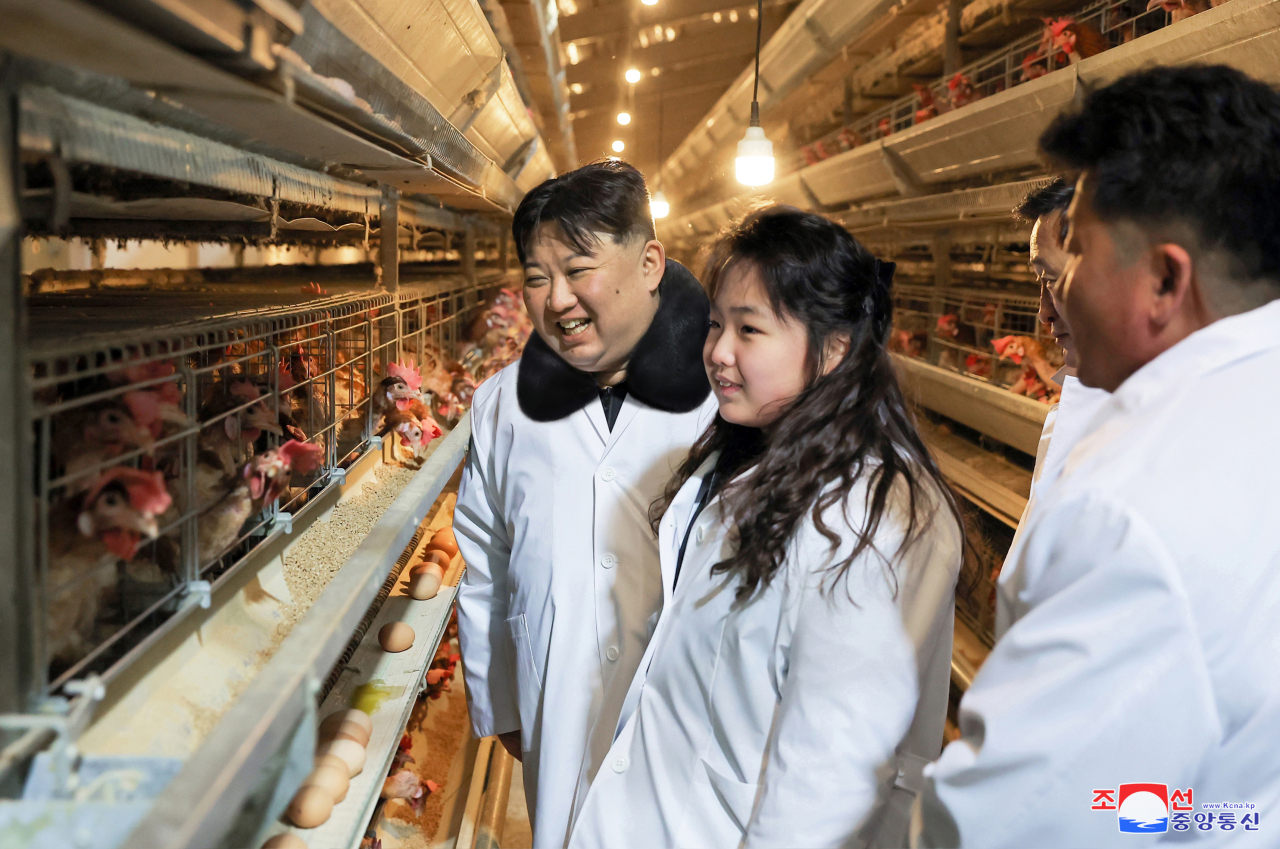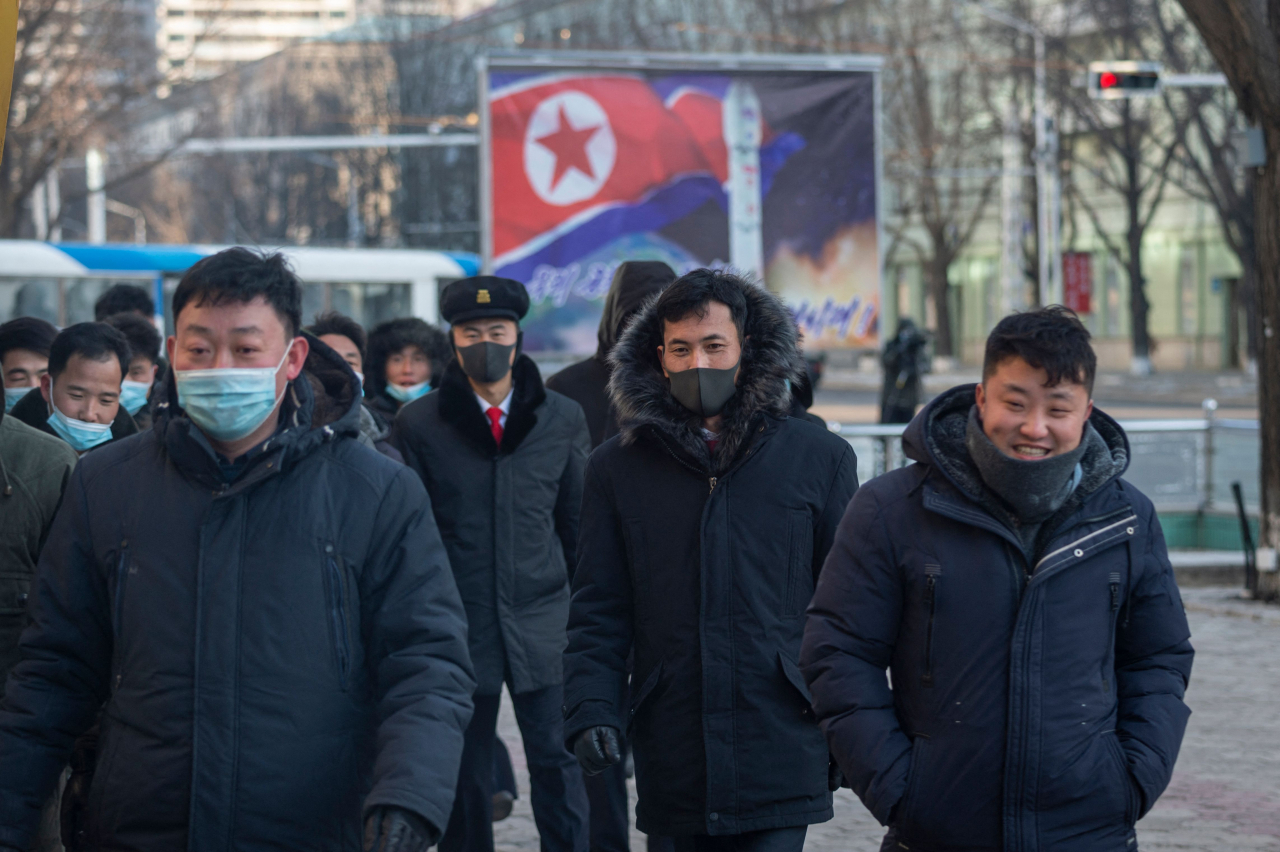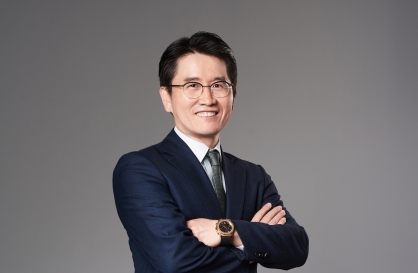Criticism of hereditary succession grows in N. Korea: report
Marketization thrives across housing, finance, transportation under Kim Jong-un's rule
By Ji Da-gyumPublished : Feb. 6, 2024 - 15:29

Discontent among North Koreans toward the hereditary succession of the country's leadership has grown over time, coupled with a pervasive negative public assessment of the performance of leader Kim Jong-un, according to a report from the Unification Ministry in Seoul.
South Korea's Unification Ministry unveiled a 280-page report comprehensively detailing the reality of economic and social conditions in North Korea. This first-ever report of its kind is based on in-depth interviews with 6,351 North Korean defectors spanning from 2013 to 2020, which was classified information.
The report categorizes the respondent defectors into five-year intervals based on when they defected to the South. The distribution for each period is as follows: before 2000, 683 individuals; 2001-2005, 934 individuals; 2006-2010, 1,320 individuals; 2011-2015, 2,501 individuals; and 2016-2020, 913 individuals.
Out of the 743 respondents who answered the question, should hereditary succession of the North's leadership be maintained, 44.4 percent expressed opposition, whereas 37.8 percent believed the system should be upheld.
"The perception of resistance to hereditary succession (of the North's leadership) has intensified among North Korean residents, with this trend notably gaining prominence following Kim Jong-un's assumption of power," the report said.
Before Kim Jong-un's ascension in December 2011, positive responses favoring the maintenance of hereditary succession were prevalent. However, after Kim assumed the position of supreme commander of the Korean People's Army, a discernible shift occurred, with negative evaluations of the system becoming dominant.
The percentage of defectors who left the country before 2000, 2001-2005, 2006-2010, 2011-2015 and 2016-2020, answering negatively to the hereditary succession question steadily increased from 22.7 percent to 30.7 percent, 31.1 percent, 42.6 percent and 54.9 percent.
When asked, why did more than 37 percent of defector respondents supported hereditary succession of the North's leadership, which is higher than expected, a senior official, requesting anonymity, said that defectors "tend to exhibit a somewhat nostalgic inclination" toward the North Korean system when interviewed in South Korea after defecting.
According to the report, 51.7 percent of the 2,664 respondents who left North Korea from 2012 onward responded negatively when asked about the legitimacy of "Kim Jong-un’s power succession," while 28.5 percent provided a positive response to the same question.
Additionally, 59.6 percent of the 3,018 respondents who defected from 2012 onward expressed a negative view of Kim Jong-un as a political leader during their time in North Korea.
A significant finding from the time-series analysis is that the longer a defector experienced Kim Jong-un's rule, the more negative the evaluation of him as a political leader became.
Among the defectors who left North Korea from 2011 to 2015, during the early years of Kim's rule, 22.3 percent viewed him positively, but this percentage dropped to 14.5 percent among those who fled North Korea from 2016 to 2020.

Marketization
The report also disclosed that defector respondents perceive a growing disparity in wealth in North Korea as marketization extends into areas such as finance, housing, labor employment and transportation.
Among the respondents, 90.8 percent indicated that wealth disparities in North Korea have intensified.
The report said that informal and private economic activities have expanded under Kim Jong-un's rule.
The proportion of respondents citing unofficial income as their primary source of earnings increased from 51.3 percent for those who defected before 2012 to 68.1 percent for those who defected from 2012 onward. Income generated from informal, market economic activities is classified as "unofficial" income, as it is not reported to the authorities.
A growing number of individuals have been involved in prohibited private financial transactions as they seek to establish the foundation for their private businesses under Kim Jong-un.
Among respondents who left the country before 2012, 48.8 percent used borrowed funds for initiating private businesses, while 44.2 percent allocated them for living expenses. Post-2012, these proportions shifted to 57.4 percent for business seed money and 35.7 percent for living expenses.
Although private employment is officially prohibited, it has been on the rise during the era of Kim Jong-un.
Among respondents who defected before 2012, only 7.5 percent had experience being privately employed. However, among defectors from 2012 onward, this proportion has increased to 13.6 percent.
The survey results for experiences with officially banned private buying and selling of homes reveal that 26.8 percent of respondents have encountered such situations.
When comparing periods before and after Kim Jong-un's rule, among defectors before 2012, 16.3 percent had experiences with real estate transactions. However, among defectors from 2012 onward, this proportion significantly increased to 37 percent.
Private transportation has expanded in North Korea due to the lack of public transportation, even though owning a private vehicle is prohibited.
The use of illegally operated vehicles for travel to nearby cities has demonstrated a proportional increase over time: 2.6 percent for those who defected to the South before 2000, 10.9 percent for those who defected 2001-2005, 13.9 percent for defectors 2006-2010, 17.9 percent for defectors 2011-2015 and 27.1 percent for those who defected 2016-2020.





![[Weekender] How DDP emerged as an icon of Seoul](http://res.heraldm.com/phpwas/restmb_idxmake.php?idx=644&simg=/content/image/2024/04/25/20240425050915_0.jpg&u=)
![[Herald Interview] Guggenheim Museum makes a push for technology-based art with LG](http://res.heraldm.com/phpwas/restmb_idxmake.php?idx=644&simg=/content/image/2024/04/26/20240426050608_0.jpg&u=20240428114717)




![[Music in drama] An ode to childhood trauma](http://res.heraldm.com/phpwas/restmb_idxmake.php?idx=644&simg=/content/image/2024/04/25/20240425050929_0.jpg&u=)






![[Herald Interview] Mistakes turn into blessings in street performance, director says](http://res.heraldm.com/phpwas/restmb_idxmake.php?idx=652&simg=/content/image/2024/04/28/20240428050150_0.jpg&u=20240428174656)
